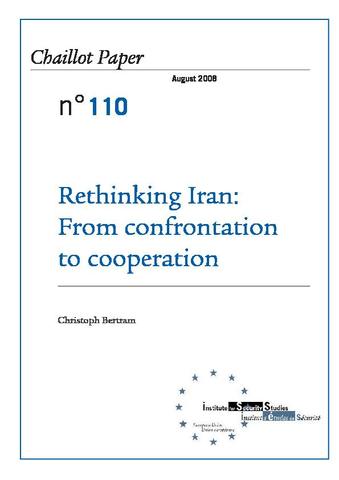You are here
Rethinking Iran: from confrontation to cooperation

Since suspicions arose six years ago about the military intentions behind Iran’s nuclear programme, an international coalition led by the United States has tried in vain to pressure, entice and threaten the Islamic Republic into halting uranium enrichment and reprocessing. Today, the issue has become a symbol of national independence in Iran. And the Islamic Republic is further advanced in terms of its potential capability for developing a nuclear bomb. It has also acquired a pivotal position with regard to all the major conflicts in the region – from the future stability of Iraq, Afghanistan and Lebanon to the Israeli-Palestinian conflict.
This paper urges Western governments to consider the alternatives approaches of cooperation, détente and even partnership as the basis for addressing nuclear concerns, as well as Iran’s growing influence on the entire region. Such a change in policy would require courage and patience, and the results are by no means certain. But while cooperation may not diminish Iran’s nuclear ambitions, a change in approach could bring results in important areas beyond the nuclear issue. The risks of such a strategy, it is argued, are not so great as to mitigate against taking this opportunity while there is still time. Should Iran nevertheless obtain nuclear weapons in a decade’s time, deterrence, containment and détante would still be effective options. Until such a time, the chance to involve Iran in efforts to bring stability to the region should not be squandered.